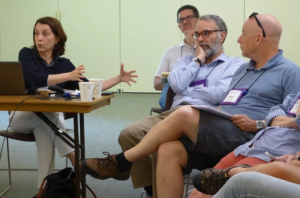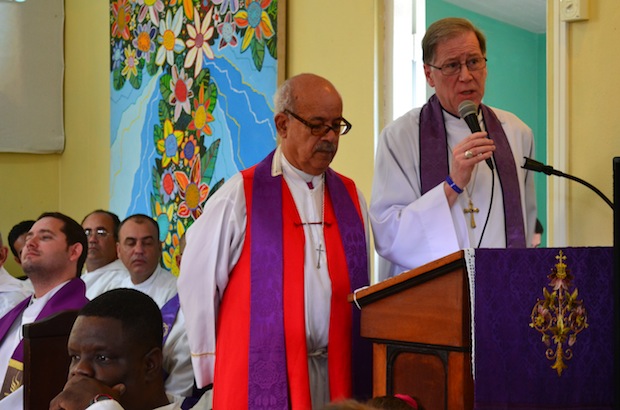
The Episcopal Church has issued the following statement:
Episcopal Church statement on reports concerning Supreme Court case pertaining to abortion
May 3, 2022
Office of Government Relations
Since 1967, The Episcopal Church has maintained its “unequivocal opposition to any legislation on the part of the national or state governments which would abridge or deny the right of individuals to reach informed decisions [about the termination of pregnancy] and to act upon them.” In light of the recent report about a pending decision in the Supreme Court case Dobbs v. Jackson Women’s Health, The Episcopal Church reaffirms our commitment to “equitable access to women’s health care, including women’s reproductive health care,” which we view as “an integral part of a woman’s struggle to assert her dignity and worth as a human being.” The Office of Government Relations will continue to advocate at the federal level to protect reproductive rights.
We encourage you to read this overview of The Episcopal Church’s positions on abortion and women’s reproductive health.
Put into simple terms, removing the euphemisms and Newspeak, TEC is endorsing the murder of unborn babies. An organisation promoting such a demonically inspired abomination should not be afforded the dignity of being called a Christian Church.
The Anglican Church of Canada hierarchy, being largely populated with spineless poltroons, has remained silent on the issue. Apart, that is, from the intrepid Rev. Michael Coren who cannot resist coming down on the wrong side of an ethical conundrum whenever he has the opportunity.
Read Coren’s claptrap here:
There is nothing Christian about allowing women to die in illegal back street abortions. Nothing Christian about removing the basic right of a woman to control her own body. Nothing Christian about wanting to criminalize female equality.
[….]
But what of scripture itself? The central point is that any ancient text, even one that is central to a religious faith and certainly crucial to my life and beliefs, has to be understood and interpreted in context and with understanding.
So, for example, when opponents of abortion quote Jeremiah — “Before I formed you in the womb, I knew you, and before you were born, I consecrated you; I appointed you a prophet to the nations” — they should grasp a few realities. First, this was written around 2,700 years ago. Second, the text is speaking of a single person, “a prophet to the nations” rather than making a sweeping comment about the beginning of life.
Or Psalm 139, “For it was you who formed my inward parts; you knit me together in my mother’s womb. I praise you, for I am fearfully and wonderfully made.” This is poetry and metaphor, a beautiful testimony to God’s love but not a guide to human biology. The very idea is unbiblical.
The New Testament has Elizabeth, the mother of John the Baptist, meeting Mary, mother of Jesus, and “the child leaped in her womb.” Again, a lyrical description of an event that shaped history, but not scientific and not supposed to be. If we’re to take a literalist approach to the Bible we’re in all sorts of trouble. By the way, it sometimes supports abortion, something the Christian right doesn’t like to mention.


 From
From 

 A Montana man said Wednesday that he was inspired by last week’s U.S. Supreme Court decision legalizing gay marriage to apply for a marriage license so that he can legally wed his second wife.
A Montana man said Wednesday that he was inspired by last week’s U.S. Supreme Court decision legalizing gay marriage to apply for a marriage license so that he can legally wed his second wife. Members of synod for the Episcopal Church of Cuba narrowly voted in favour of returning to the church’s former affiliation with The Episcopal Church at their recent meeting last month in Cardenas, Cuba.
Members of synod for the Episcopal Church of Cuba narrowly voted in favour of returning to the church’s former affiliation with The Episcopal Church at their recent meeting last month in Cardenas, Cuba.